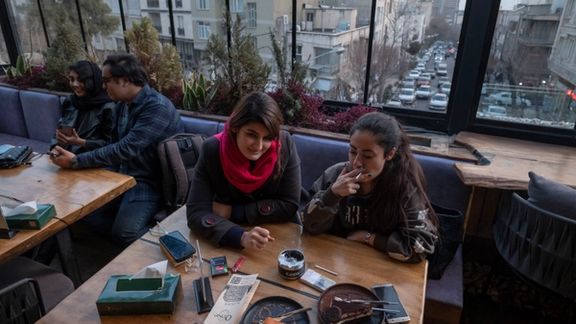Iranian Regime Marks Anniversary As People Adapt Protests

As the Islamic Republic has started its 10-day celebrations to mark the establishment of the regime, grassroot groups have called on people to chant antigovernment slogans every night.

As the Islamic Republic has started its 10-day celebrations to mark the establishment of the regime, grassroot groups have called on people to chant antigovernment slogans every night.
As the Islamic Republic has started its 10-day celebrations to mark the establishment of the regime, grassroot groups have called on people to chant antigovernment slogans every night.
The state-sponsored ceremonies of Fajr – which literally means dawn – mark the 44th anniversary of the Islamic Revolution and will be held from February 1 to 11. The group dubbed Youth of Tehran Neighborhoods (or Tehran Youth), which has managed to mobilize numerous successful protests in several towns and cities, has issued a statement to ask people to chant anti-regime slogans every night during the 10-day ceremonies from their rooftops, balconies or windows.
Describing the Fajr ceremonies as a reminder of “the beginning of suffering and gloom for Iranians," the group called on people to chant that “We swear on the blood of our comrades, we will stand until the end." Since the antigovernment protests began across the country following the death in custody of Iranian Kurdish woman Mahsa Amini, more than 500 people have been killed by the regime’s security forces.
The new call for chanting slogans and political graffiti on walls in cities, as well as other moves of civil disobedience herald a new phase in the uprising of the Iranians against the regime. The grassroot group added that “the most salient feature of this new phase is the internalization of the motivation for the fight against the regime through finding new methods of protests, which are effective but have lower costs for the protesters."
The group went on to describe street protests as the most important and the main method of the revolt that will eventually "bring down the gods of oppression, murder, rape and destruction from their thrones" but emphasized that protests should not dwindle until the day comes when millions of people conquer the streets.
The new spirit of the protests is felt by many Iranians who are continuing their defiance with acts of civil disobedience such as appearing in public without the mandatory dress code. Posting photos and videos of themselves without hijab in public places, some women claim that they do not even carry headscarves with themselves when leaving home.

The new zeitgeist of the country is also echoed in Iranian and foreign media, such as an article in the Wall Street Journal that said organized protests have largely tapered off but those still willing to demonstrate gather in small groups, scattered around Tehran and other cities with little to no coordination.
Except for Kurdish-majority areas in the western part of the country and Baluch-majority areas in the southeastern province of Sistan-Baluchestan, whose residents are dominantly Sunni Muslim, the rebellion of the people has become quieter but is still fierce and ongoing. Thousands of women in Tehran now walk outdoors without the compulsory hijab, noting that this new form of civil disobedience is unlikely to topple the regime but also seems too difficult to contain in the future.
The WSJ cited Peyman Jafari, a historian of Iran’s social history and assistant professor at The College of William & Mary in Williamsburg in Virginia, as saying that “Many Iranians have come to the conclusion that the regime isn’t viable, but they have not come to the conclusion that this revolt is viable.”
Mohsen Sazegara, journalist and pro-democracy political activist, told Iran International that the people have acquired new methods of protests in order to avoid being hurt by “this predatory animal," referring to the regime’s oppression machine.